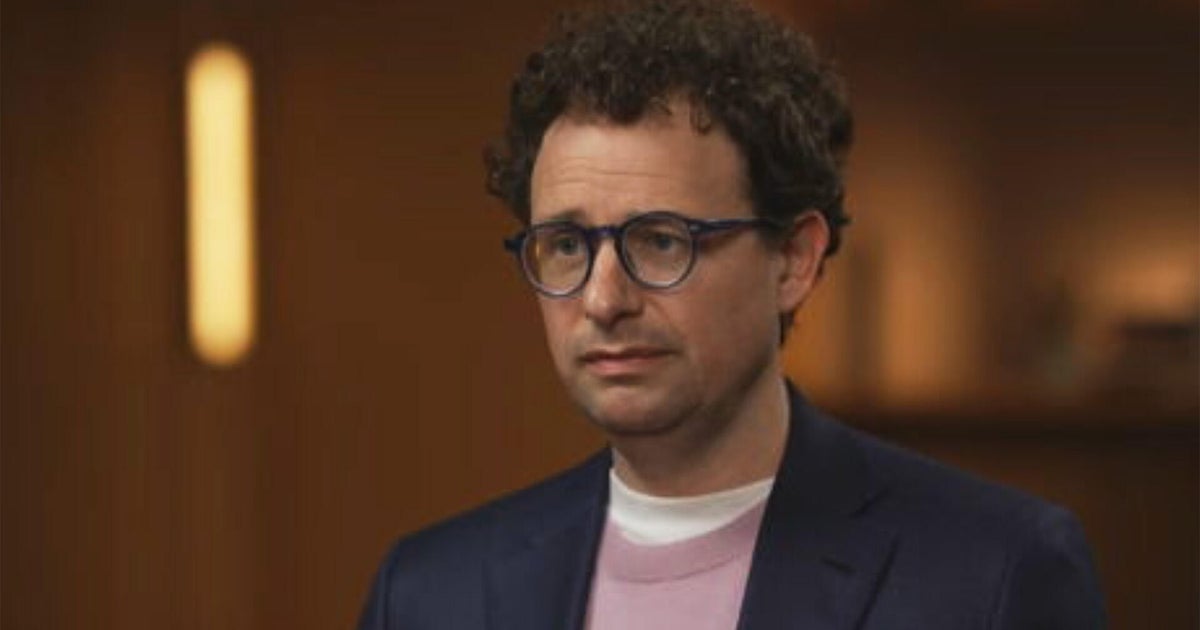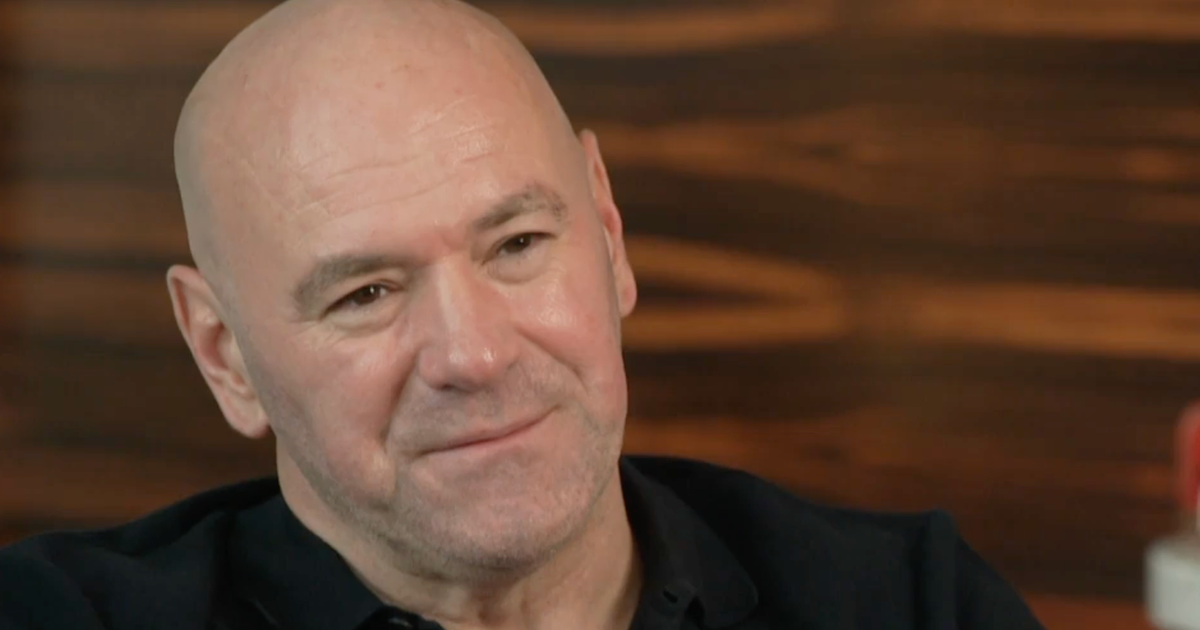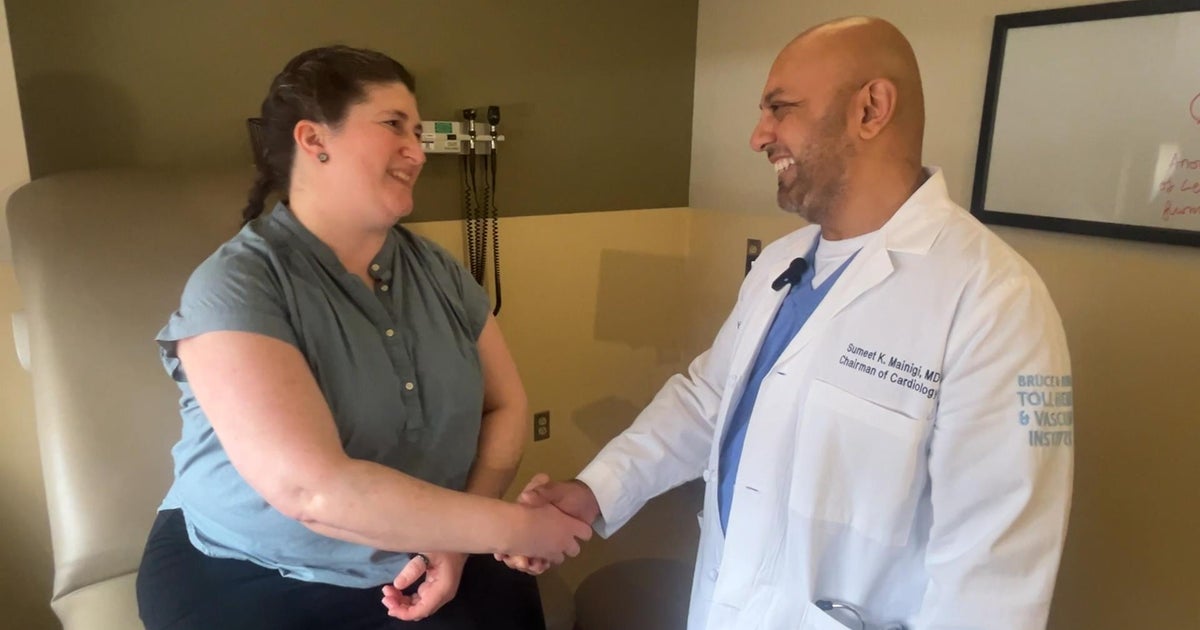Transcript: Scott Gottlieb discusses coronavirus on "Face the Nation," February 28, 2021
The following is a transcript of an interview with former FDA Commissioner Scott Gottlieb that aired February 28, 2021, on "Face the Nation."
MARGARET BRENNAN: We go now to former FDA commissioner Dr. Scott Gottlieb, who's on the board of Pfizer, as well as the Illumina, and he joins us from Westport, Connecticut. Good morning.
DOCTOR SCOTT GOTTLIEB: Good morning.
MARGARET BRENNAN: Dr. Gottlieb, you heard Dr. Fauci say a few million doses of this new J&J vaccine should be available. Would you take it?
DR GOTTLIEB: I would. I think this is a good vaccine. They'll ship about four million doses this week. The vaccine was very effective at preventing severe disease, 85% effective at preventing severe and critical disease. Also, interestingly, if you look at the clinical data, it was 74% effective at prevent- preventing asymptomatic infection, which is a suggestion that is preventing transmission as well, which is really what all the vaccines are starting to demonstrate in the data that's being accrued. There is more and more evidence that these vaccines are preventing transmission of infection, which makes them an even more important public health tool. But the data was quite strong with the J&J vaccine. I think people should be confident about taking it. And it will be in the market this week.
MARGARET BRENNAN: Dr. Fauci said there are worrisome variants in New York and California and said that may be partly why they're seeing some stalling happening with this trajectory that had otherwise been headed downward. What do you think? Are we being set back?
DR. GOTTLIEB: Well, I think the stalling could be explained by just increased mobility. If you look at Google mobility data, people are moving around more. I don't think that the New York variant, which is called 1.526, is really having much of an impact yet. It represents about 9% of the infections in New York City. So it's still small. It's going to increase. This strain actually started to become prevalent as early as this summer. It was first introduced into the summer. So it really probably didn't explain the surge that we've seen. There's two different lineages of this variant. So two different forms of the variant. One of them has the same mutation that's in the South African variant. That's the one we're more concerned about. That represents about 5% of infections in New York. So we're more worried about the New York strain because it may pierce prior immunity and vaccines may be less effective against that and still very speculative. With respect to the Los Angeles variant, people are a little less concerned about that. It may be more transmissible, but it doesn't seem to have that E484K mutation, that mutation that we found in the South African variant that seems to make vaccines a little less effective and seems to allow people who've been infected before to get reinfected. So we're more concerned about the New York variant. But again, I don't think these variants are explaining what we're seeing right now, with the exception maybe of South Florida and Southern California, where 1.1.7 is becoming prevalent. And that may be causing a backup in Florida and Southern California right now.
MARGARET BRENNAN: When should we expect booster shots?
DR. GOTTLIEB: I think we're going to get boosters in the fall and, you know, there's studies right now underway by Moderna and Pfizer, the company I'm on the board of, looking at a third booster of the existing vaccines. And they'll also be looking at new variant vaccines that they're going to put into development and see which are more effective. I think the reality is that we have time to get a better toolbox for the fall to take care of these variants that we're seeing emerge and develop vaccines that can cover them. But, you know, you will probably be getting boosters in the fall for people who are getting vaccinated right now.
MARGARET BRENNAN: I want to ask you about Governor Noem who spoke on this program saying she never focused- she told CPAC she never focused on case numbers, she focused on hospital capacity. And she rejected the premise that the motorcycle rally that she held in her state in August was responsible for seeding the Midwest outbreak. What do you make of- of her defense?
DR. GOTTLIEB: Well, look, I think it is important to look at the vulnerable population and hospital capacity and how many people are being hospitalized and dying from the infection as an important metric. But you also have to look at prevalence. Certainly back when we were having the first and the second and even the third wave of infection, prevalence was an important predictor of overall morbidity from the infection before we had a vaccine. If you look at post-July 1, and the reason why I picked July 1 is because July- before July 1, we really didn't know how to treat COVID. We were treating it literally with Pepcid and hydroxychloroquine. But after July 1, we had the data from the UK study, the recovery trial that told us that dexamethasone, the steroid, was very effective at cutting mortality. We started to use blood thinners on patients. We were intubating less aggressively. So practice of medicine dramatically improved after or around that time period. If you look at post July 1 in terms of deaths per capita by state, South Dakota is the last, Arizona is second to last, Mississippi, Alabama and North Dakota. Those are the states that come in last in the nation in terms of deaths per capita. So, you know, I think that the states that didn't implement as stringent measures, they did pay a price for it. And I don't think that you can- you can explain that away. I think it's just a fact. And, you know, they- they will argue that they maybe didn't take the same economic hit as states that imposed restrictions, but they did pay a price for it--
MARGARET BRENNAN: Yeah.
DR. GOTTLIEB: --in terms of higher death rates.
MARGARET BRENNAN: Yeah. Dr. Gottlieb, thank you for your perspective, as always. We'll be right back.



